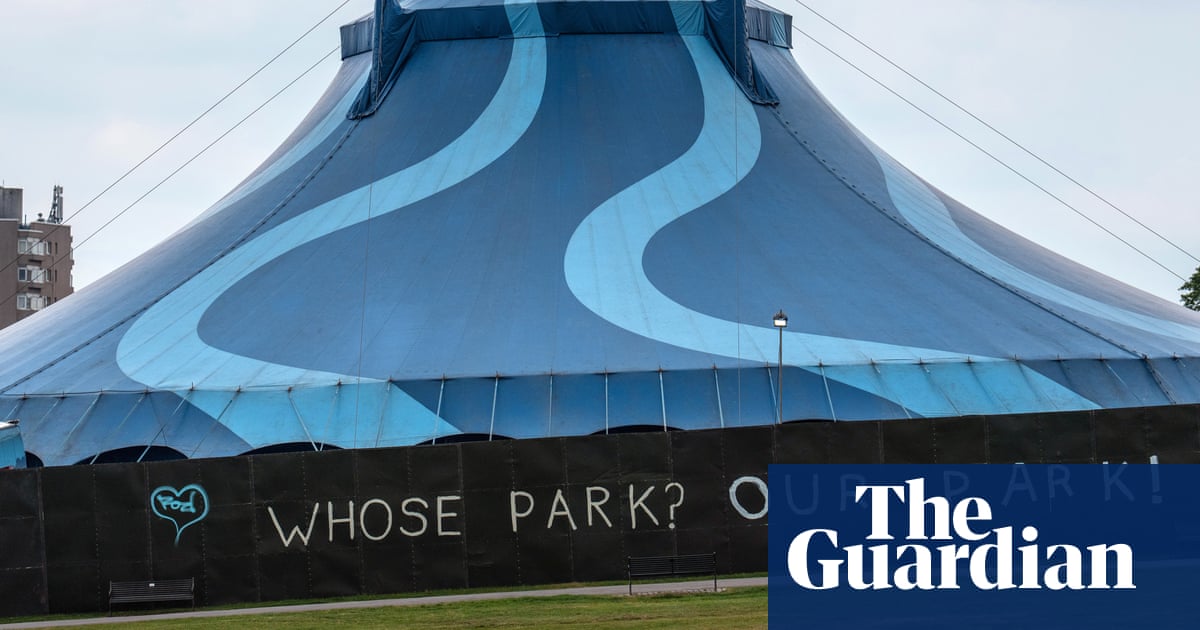Public parks have been a cherished part of British life since the 19th century; for the Victorians they represented a “commitment to cultivate public good within the public realm”.
But differing interpretations of this vision for municipal green space are at the heart of a debate over a very 21st-century issue: music festivals.
This week, the row over mass music gatherings in Brockwell Park, southLondon, has injected fresh impetus into some age-old questions: exactly what are public parks for, who should have access to them and for how long?
On one side stand the thousands of festivalgoers who attend the events in south London. On the other is Protect Brockwell Park (PBP), the campaign group that counts celebrities such as Mark Rylance among their number and won a high court victory a week ago against Lambeth council whose decision to grant festival organisers use of the park was deemed “irrational”.
PBP’s argument is one of proportion.Festivalsare fine in principle, as long as there aren’t too many. But their critics have questioned whether a small but powerful group should be able to limit the enjoyment of so many.
The author Emma Warren who is attending City Splash at the park on bank holiday Monday, says the high court verdict came in the same week the supreme court ruled people havethe legal right to wild camp on Dartmoor.
“This is being billed as the need for collective space versus protection of nature,” says Warren. “But actually, I see it as part of a long-established pattern. This is about a small number of people trying to limit a larger number of people’s access to space.”
For Jen Hawkins of PBP, however, the ruling represents a much-needed marker laid down. “A few years ago they reached a kind of a happy medium whereby, yes, it annoyed a few people, but it was tolerable, and it wasn’t fencing off people from their precious green space,” she says. “I think this last year was a tipping point when the ground was completely trashed for the whole of spring and summer.”
This weekend, thousands will attend the Mighty Hoopla festival in Brockwell Park, when Daniel Bedingfield will belt out his garage classicGotta Get Thru This. On Saturday, the chorus might just carry a bit more weight than usual for organiser’s whose resolve is being tested.
The Brockwell Park row is taking place against a backdrop of the rising costs of putting on events, which led to a record 72 events being postponed, canceled or folded in 2024 as ticket prices soared.
Despite the challenges, the festivals persist. Wide Awake and the Mighty Hoopla are part of seven events taking place in Brockwell Park. Victoria Park in Tower Hamlets hosts All Points East and Lido; Gunnersbury Park welcomes several gigs including the Smashing Pumpkins, the independent dance music festival Waterworks and Fearne Cotton’s Happy Place festival. While a series of conerts are taking place at Crystal Palace, including a sold out show by Deftones and Weezer.
Hawkins says PBP is not “anti-festival”. The group would like to see the Brockwell Park dates moved to later in the year so the park is accessible in summer, an ecological assessment of the impact the events, and the introduction of “fallow” years.
John Rostron, the CEO of theAssociation of Independent Festivals, says organisers already have to meet a long list of requirements to get licences. “You have to go through the local authority, which is a representation of the local community, to get a licence and meet all of the relevant health, safety, crime and disorder targets,” he says.
“You can do all of that work but it doesn’t mean that every single person is going to be satisfied. We’re giving a lot of air time to the handful that are dissatisfied.”
“Is it a nuisance to gather and listen to music together, or is it a nuisance to complain about that behaviour?” asks Warren. “It strikes me that the idea that a small number of very opinionated and unelected people can stop collective and communal activity is very culturally specific. Globally, this is not normal.”
The issue of who uses public spaces and for how long isn’t limited to the capital: in Liverpool there is a live debate about Radio 1’s Big Weekend taking over Sefton Park in the city this summer.
PBP says their campaign is about holding Lambeth council to account and claiming back space from the big companies that own some festivals. The Mighty Hoopla was bought by Superstruct in 2023 whose parent company was in turn bought last summer by the American private equity firmsKKRandCVC.
Some acts have pulled out of Field Day, citing KKR’s holdings in Israel, while campaigners called for the event to “publicly distance itself” from the investment firm. Mighty Hoopla put out its own statement, which said it wished “to state our clear opposition to KKR’s unethical investments”.
Hawkins argues that only “a tiny amount of money” is going back into the park, with much of it going to the companies. “They’re the real winners out of this,” she says.
At present all the scheduled events will take place in Brockwell Park, starting with Friday’s Wide Awake festival after the council submitted a new application, but more legal challenges could emerge as the summer progresses. “I honestly do not know what’s going to happen next,” says Hawkins.
“I’d like to think it really has set a precedent for future years, both for Brockwell Park and hopefully other public parks across the country, that councils can’t misuse their planning powers and get away with it,” she says.
Donatus Anyanwu, a Lambeth councillor and cabinet member for stronger communities, said: “Overall, we believe our events create an important cultural offer for our young and creative borough, while also enabling us to keep London’s biggest free community festival, the Lambeth Country Show, as a free and safe event.”
